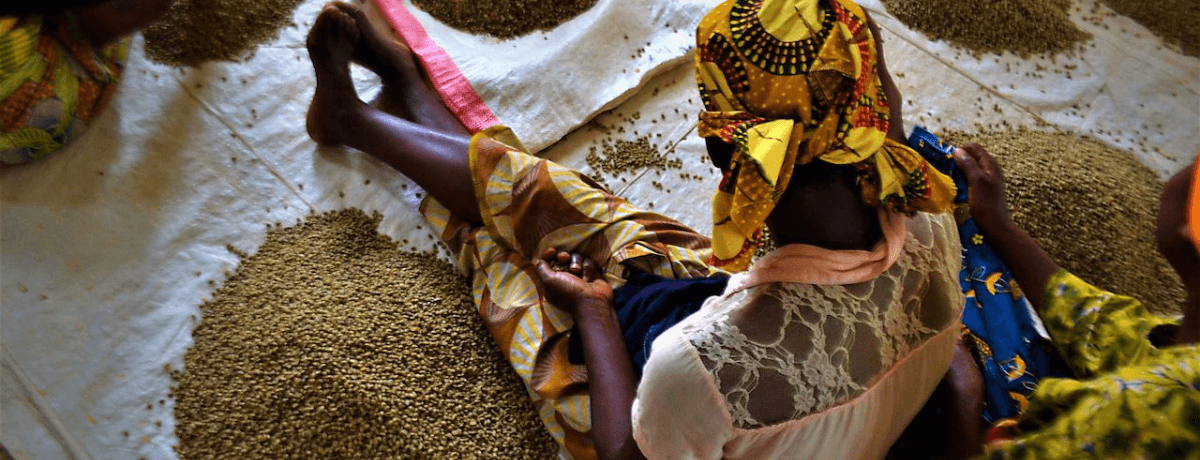
Africa's coffee exports increased by 6.8% in the second month of the 2022–23 coffee year.
Ethiopia Trading Updates
As we approach the mid-month mark, the minimum prices as published by the Ethiopian Coffee & Tea Authority (ECTA) for selected green coffee are as follows: Washed Yiragcheffe G1 at $3.73/Ib Washed Yiragacheffe G2 is priced at $2.92/Ib., while washed Sidamo Grade 1 is priced at $3.73/Ib. and washed Sidamo G2 is priced at $2.92/Ib., all of which remain unchanged from the previous two weeks.
Sidama G3 and G4 Naturals are priced at $2.80 per pound and $1.97 per pound, respectively, with prices remaining the same for both coffee types.
Africa’s exports of coffee totaled 2.16 million bags
From 1.02 million bags in November 2021 to 1.09 million bags in November 2022, exports of all types of coffee from Africa climbed by 6.8%. Exports reached 2.16 million bags in the first two months of the current coffee year, as opposed to 2.15 million bags in the coffee year 2021–2022.
Uganda's exports declined for the eleventh straight month in November 2022, falling 14.8% to 0.45 million bags from 0.52 million bags the previous month. The positive pulls of Ethiopia's exports (up 29.2%, all Arabica), Kenya's (up 16.6%, Arabica), Rwanda's (up 63.6%, Arabica), and Côte d'Ivoire's (up 111.1%, mostly robusta) and Rwanda's exports (up 63.6%, Arabica) were strong enough to counteract Uganda's significant negative pulldown on Africa's coffee exports in November 2022.
The International Coffee Organization (ICO) also hinted that coffee prices will resume their upward trend after ending 2022 on an even note.
CSF has released its "Sweetness in Coffee" study.
The Coffee Science Foundation (CSF) announced the launch of its new research project entitled "Sweetness in Coffee: Sensory Analysis and Identification of Key Compounds" in partnership with the Flavor Research and Education Center (FREC) at Ohio State University. Contrary to popular belief, sugars found in the bean do not, in fact, contribute to the sweetness of coffee, according to recent studies. This has raised a question among sensory scientists and coffee experts: if sugars do not make coffee taste sweet, what could account for the sweetness of high-quality coffee?
"FREC has created "untargeted" chemical fingerprinting techniques to increase our thorough comprehension of flavoromics—the study of the factors that affect flavor. These techniques are useful for defining complicated flavor perceptions, such as sweetness, which can be influenced by a variety of sensory organs, including taste and smell, as well as by flavor modulators.
The CSF concluded that uncovering the mystery behind sweetness is a crucial part of the organization’s journey toward making coffee more sustainable for all the major players in the value and supply chains.
World of Coffee Dubai 2023 and the growing coffee imports through DMCC
In its second edition, World of Coffee Dubai 2023 accommodated more than 300 exhibitors (100 more exhibitors compared to 2022’s event) and more than 12,000 visitors (5,000 more visitors compared to 2022’s event), with the event going lively through activities at the Roaster’s Village, the 2023 UAE National Coffee Championships, and various other activities. On a related note, the Dubai Multi Commodities Centre (DMCC) coffee hub announced the processing of over 4,000 metric tons of imported green and roasted coffee. It should be noted that during the first quarter of Ethiopia's fiscal year 2022/23, the UAE rose to become the fifth largest importer of Ethiopian coffee.
Coffee may provide protection against non-alcoholic fatty liver disease (NAFLD).
Coffee may provide protection against non-alcoholic fatty liver disease (NAFLD). A questionnaire was used to gauge the amount of coffee consumed by 156 overweight people, 87% of whom had Type-2 diabetes (T2D), and 98 of them (all of whom had T2D) also provided a 24-hour urine sample for the purpose of measuring coffee metabolites. The study came to the conclusion that people with type 2 diabetes who drank more coffee had less severe NAFLD.
